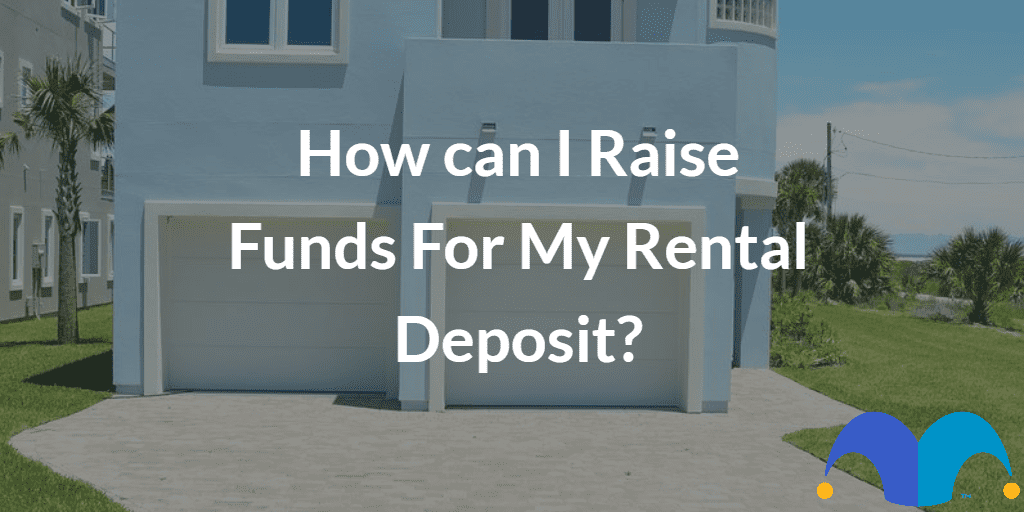Moving home can cost a considerable amount of money, and may involve getting into debt. For renters, the biggest amount of money to pay is the rental deposit. Added to the first month’s rent, this can be a big sum to raise.
In an ideal world, renters would have enough money for a deposit ready in a savings account. But what if you have no savings? Here are some ideas for getting a deposit together from scratch.
What is a rental deposit?
At the beginning of a tenancy, landlords demand an amount of money from the tenant to cover any future damage to the property or unpaid rent. The landlord should place the money in a deposit protection scheme, which ensures that it can be returned at the end of the tenancy.
What is the maximum tenancy deposit?
The maximum tenancy deposit allowed is the equivalent of five weeks’ rent.
Use the highest rent you can afford per month to calculate the most you will have to pay as a deposit. For example, on a rent of £1,000 per month, to calculate the maximum deposit, you need to:
- multiply by 12 = £12,000 per year
- divide by 52 = £231 per week
- multiply by 5 = £1,155 maximum tenancy deposit
Before getting the keys, a tenant paying a monthly rent of £1,000 would have to pay £2,155 in total.
What can I do to help with my rental deposit?
A rental deposit is money withheld rather than spent. For that reason, there are plenty of ways to raise the funds you need.
Borrow a rental deposit
Responsible tenants usually get their deposit back in full (eventually). Therefore, family members and friends may be persuaded to loan the money until it is returned when your rental agreement ends.
Some employers, particularly in the capital, are part of the tenancy deposit loan scheme. This is an advance on wages to cover a rental deposit. The scheme is available to people in the Armed Forces, for example.
Even if you don’t work for a business that offers this remedy officially, it makes sense to ask your employer for an interest-free advance, if needed.
It’s best to steer clear of high-interest short-term loans, even if you expect to pay the amount back on time.
Earn your deposit
There are many ways to earn a little extra money and save towards a deposit. This is a sensible approach for anyone who is not in a hurry to move.
What if you need to move quickly or unexpectedly? Landlords were required to give tenants more notice during the pandemic. Currently, they need to give a minimum of four months’ notice, but this might change.
A quick way to make cash to put towards a deposit is to declutter and sell the stuff you don’t want to take with you. Or set aside a few hours to earn extra income via a platform like TaskRabbit.
Use a credit card
If you are eligible for a tenancy agreement, it’s likely you have a good credit rating.
Using a credit card that offers 0% on purchases for everyday spending allows normal monthly income to build up in a current account. This can be used to pay short-term unusual expenses which can’t be paid with a credit card, like a deposit.
Only attempt this method if the debt will be paid off within a short time frame. To avoid paying interest, the balance on the card must be paid off before the 0% period comes to an end.
Can your local council help you with a rental deposit scheme?
There are long waiting lists for local authority housing, unless you are in immediate danger of being homeless. Instead, housing departments offer specific advice and help to individuals so that they can secure a private tenancy in the area.
Each council offers different schemes to access a rental deposit and first month’s rent for people on low incomes threatened with homelessness. Some councils may suggest applying to a credit union for a loan, but the interest rates can be very high.
Do all landlords require a large deposit?
Some landlords provide the option to pay just one week’s rent as a ‘deposit’. This money is used to pay an insurer who will cover the risk of the tenancy. This may seem an attractive offer, but the initial payment is not returned, and the tenant may be liable to pay the insurer for any damages.
It could be better to wait and keep saving.
Takeaway
Raising a sum of money in a short time is possible. By using a combination of methods – selling, borrowing, and earning – you can quickly reach your goal.
